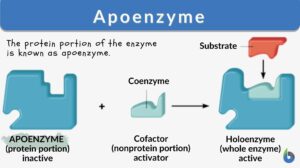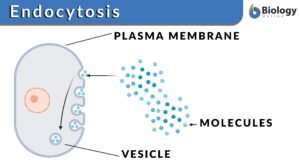Search Results for: vitamin bx
Vitamin Bx
Definition noun A term for para-aminobenzoic acid, a factor in the vitamin B complex. Supplement Para-aminobenzoic acid or... Read More
A Balanced Vitamin Diet – Vitamins A – K
As mentioned in the previous tutorial, a balanced diet is essential to a healthy organism. Deficiencies in particular... Read More
Vitamin B complex
Definition noun (pharmacology) A supplement containing the eight B vitamins, particularly thiamin (vitamin B1), riboflavin... Read More
Fat-soluble vitamin
Definition noun, plural: fat-soluble vitamins Any from the group of vitamins that are insoluble in water but soluble in fat... Read More
Water-soluble vitamin
Definition noun, plural: water-soluble vitamins Any of the group of vitamins that dissolve in water and excreted rather... Read More
Integumentary system
Integumentary System Definition The integumentary system is the outermost layer of the body. The animal body, in... Read More
Flavin mononucleotide
Definition noun plural: flavin mononucleotides fla·vin mon·o·nu·cle·o·tide, ˌmɒnəʊˈnjuːklɪəˌtaɪd A... Read More
Effect of Chemicals on Growth & Development in Organisms
Plants Plants require a large number of elements to function properly, mainly carbon, oxygen, and hydrogen, essentially... Read More
Kidneys and Regulation of Water and Inorganic Ions
Renal Functions Kidneys remove/add substances from/to the plasma.Regulate water concentration, inorganic ion... Read More
Pseudovitamin b12
pseudovitamin B12 (Science: biochemistry) Cobamide cyanide phosphate, 3'-ester with 7-alpha-d-ribofuranosyladenine, inner... Read More
Chondroblast
There are two forms of cells in cartilage: chondroblasts and chondrocytes. The chondroblasts are cells that secrete the... Read More
Alimentary canal
Definition of Alimentary canal What is the alimentary canal? The alimentary canal is a muscular hollow continuous tubular... Read More
Endocytosis
Endocytosis Definition What is endocytosis in biology? Endocytosis is a cellular process by which a cell internalizes any... Read More
Capillary fragility test
Definition noun A tourniquet test that is used to determine vitamin C (ascorbic acid) deficiency or thrombocytopenia... Read More
Eubacteria
Eubacteria are prokaryotic microorganisms consisting of a single cell lacking a nucleus and containing DNA is a single... Read More
Mononucleotide
Definition noun plural: mononucleotides mon·o·nu·cle·o·tide, ˌmɒnəʊˈnjuːklɪəˌtaɪd A single nucleotide (as... Read More
Flavin adenine dinucleotide
Definition noun plural: flavin adenine dinucleotides fla·vin ad·e·nine di·nu·cle·o·tide, ad·e·nine... Read More
Micronutrient
Definition noun, plural: micronutrients A nutrient needed in small amounts Supplement Micronutrients are those nutrients... Read More
Brussels sprouts
Definition noun The edible buds of a cultivar (Gemmifera) of Brassica oleracea of the Brassicaceae... Read More
Digestion and Absorption of Food
The gastrointestinal (GI) system includes the gastrointestinal tract (mouth, pharynx, esophagus, stomach, small intestine,... Read More
Skeletal system
What is the Skeletal System? How to define a skeleton? The skeletal system is the main framework that gives your body its... Read More
Putnam-dana syndrome
Putnam-Dana syndrome --> subacute combined degeneration of the spinal cord A subacute or chronic disorder of the spinal... Read More
Bone matrix
Bone Matrix Definition Bone matrix refers to the matrix component of bone tissue. It provides the structural framework and... Read More
Glycolysis
What is Glycolysis and Why is it Important? Glycolysis is a metabolic pathway by which the 6-carbon molecule of glucose is... Read More
Digestive Enzymes
Have you ever thought about what happens to the food after you have taken it into your mouth? How those big steak pieces... Read More
Antivitamin
Antivitamin a substance that prevents a vitamin from exerting its typical biological effects. Most antivitamin's have... Read More
Growth and Plant Hormones
Growth All living organisms begin in the same form: as a single cell. That cell will divide and the resulting cells will... Read More
Phosphorylation
Phosphorylation Definition We can define phosphorylation as a biochemical process in which a phosphate molecule is added to... Read More




















